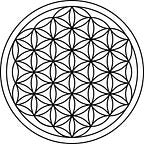The concept of “game” is not clearly defined anywhere. It is one of those words that we seem to intuitively understand, but have a hard time giving a specific definition. In common sense, we use the word “game” to describe something not serious, which is done for fun and not for real when we have nothing to do.
Here the Game is viewed in a much broader sense — it is any activity that is aimed to acquire evolutionary experience. For human players, it is needed for vertical evolution and the development of awareness at a higher level.
For incarnations of higher beings, it is essential for horizontal evolution, self-actualization in constantly changing game situations. Their responsibility is to support the development of various directions of the game, control the gameplay as well as create specific conditions for the evolutionary development, etc.
There is also a concept of “game worlds” — the basic levels of Creation that represent a game space. These are the worlds in which players and the civilizations which they created act, etc. They correspond to levels divisible by 5, but not divisible by 10, and also some levels that are divisible by 3.
Since the Game affects all levels of the Matter, this concept can be more broadly referred to as the processes of horizontal and vertical evolution at any level of the Matter (up to level 108). The concept of the game can also be attributed to a number of levels above the Matter, such as levels 115 and 125, where Spirits with free creative will live while acting through horizontal evolution.
Here is more about the generally accepted concepts of the game and why everything described above is called the Game and not otherwise.
The word “game” makes many people first remember the games they played in childhood: sports, intellectual games, computer games, etc. But initially, all this was not just a mere pastime. Even mainstream science writes about a ritual and magic sense of many children’s games.
Playing cards and chess constitute at the same time models of the world and tools for impacting reality. Computer games almost always have a prototype in the form of a real world on some level.
There is so much to tell about aspects of these games: their superficiality, the fact that through them the energy is “pumped” from people and people’s minds are redirected to petty goals like a cash prize, etc. Many games were created in a way that they contribute little to the evolution — this is a consequence of the matrix systems’ work.
Yet, in psychology, there are several quite successful definitions of the game/play.
J. Huizinga’s definition of play is as follows: “Play is a free activity standing quite consciously outside ‘ordinary’ life as being ‘not serious,’ but at the same time absorbing the player intensely and utterly. It is an activity connected with no material interest, and no profit can be gained by it. It proceeds within its own proper boundaries of time and space according to fixed rules and in an orderly manner.”
Here it is important to note the following:
1) Voluntarism. That is the activity according to your soul’s guidance.
2) Feeling of effort and joy. Effort gives the concentration of the player’s consciousness and the development of his awareness at a higher level. A sense of joy is natural for self-actualization when you unfold the deep qualities of your being, passing through stages of the evolutionary path.
3) Distinctiveness from ordinary life and being unconditioned by its rules. This point is both right and wrong.
It is incorrect because, for the player, the game space is the entire reality in which he lives, with all its elements.
The correct part is that the conditions that life dictates to a person, in the vast majority of cases, do not contribute to his self-fulfillment, and do not give spiritual experience. The ordinary reality is largely dictated by external control systems that use people as “robots”.
Thereby the definition of game in psychology is opposed to everyday life, and especially to work in the sense in which it exists now. For more information, read Sansara Programs.
Translated by Valeria Markova
Original article: Определение игры
